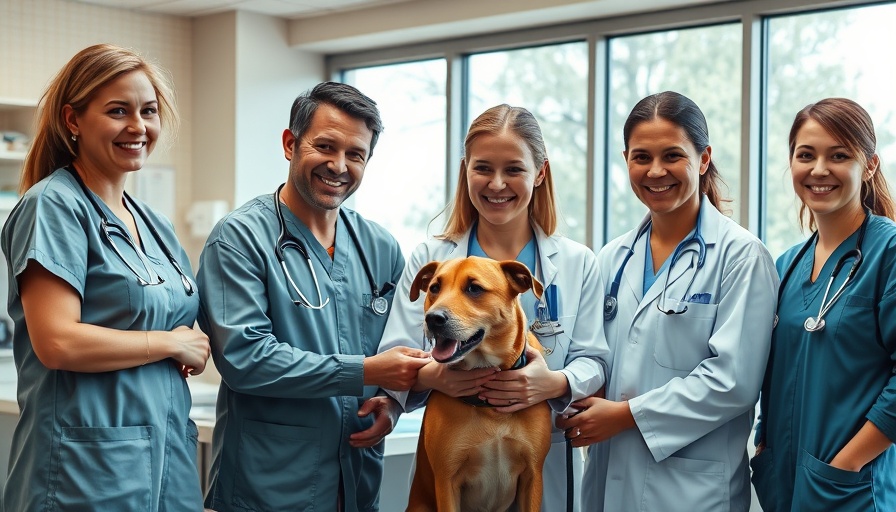
The Autopilot Verdict: A Wake-Up Call for the Automotive Industry
In a landmark decision, a Miami jury assigned significant responsibility to Tesla for a tragic crash involving its Autopilot technology. This verdict, which requires Tesla to pay more than $243 million in total damages, serves as a flashpoint in the ongoing debate surrounding autonomous vehicle safety. The jury's ruling underscores the liability that tech companies may face as the lines between human control and machine assistance continue to blur.
Understanding the Case: The Circumstances Behind the Verdict
The case centers on an accident from 2019 in Key Largo, Florida, involving Naibel Benavides Leon and her boyfriend, Dillon Angulo. Although the driver admitted to being distracted by his phone, the jury found that Tesla's technology played a significant role in the disaster. They highlighted that not all blame can be placed on human error when technology fails. For plaintiff's attorney Miguel Custodio, this verdict could set a precedent, opening doors for future claims as more victims may feel emboldened to pursue cases against tech giants.
Decoding Tesla's Response: Implications for the Future
Tesla has signaled its intention to appeal the verdict, claiming that the ruling not only misrepresents the facts of the case but potentially undermines the industry's efforts to advance automotive safety technologies. In a statement, they argued that the verdict will set back progress and jeopardize the development of life-saving technological innovations. With public trust in autonomous systems hanging in the balance, the automotive world is watching closely to see how Tesla navigates the fallout from this case.
Lessons for Veterinary Practices: Risk Management in Technology
Veterinary clinics increasingly rely on technology for operational efficiency and patient care, from electronic health records to telemedicine. The implications of the Tesla verdict resonate beyond autonomous vehicles; they hint at the importance of implementing robust risk management protocols in any tech-dependent environment. Just as Tesla's technology faced scrutiny, veterinary practices can also be held accountable for technology-related errors. Ensuring thorough training, transparency, and effective customer communication is crucial.
Trust and Transparency: Building Client Confidence
The trust deficit in Tesla's Autopilot technology highlights an essential lesson for all industries, especially in the veterinary field. Clinic owners and managers must recognize that admitting mistakes and establishing clear lines of communication can greatly enhance client relationships and solidify loyalty. Clear, accurate communication about the capabilities and limitations of technology not only builds trust but also prepares practitioners to handle any adverse situations that may arise.
Future Predictions: The Evolution of Technology in the Market
This case may mark a pivotal moment as the industry adapts to a future where technological failings can lead to heavy financial penalties. For veterinary clinics leveraging modern technology, understanding the implications of such liability issues will be crucial. Looking ahead, industry experts suggest that those who prioritize safety protocols, carry updated insurance, and ensure transparent practices will have a competitive edge as technology continues to evolve.
The Ripple Effect: Significance for the Broader Automotive Sector
The outcome of the Tesla trial sends shockwaves throughout the automotive landscape. As the demand for autonomous vehicles grows, so does the public's concern for safety. Financial analyst Dan Ives of Wedbush Securities pointed out the ramifications of this verdict could provoke other tech companies in the automotive sector to reevaluate their own technology and safety measures. This situation emphasizes that innovation without accountability can lead to dire consequences.
As discussions surrounding liability in the tech industry grow more complex, the potential impact on both the automotive sector and veterinary practices cannot be underestimated. The key takeaway for veterinary clinics lies in the critical balance of embracing technology while ensuring that safety and responsibility are never compromised.
In light of this groundbreaking case, veterinary clinic owners are encouraged to prioritize their operational protocols. Taking deliberate steps towards transparency, effective training, and leveraging technology responsibly can not only prevent potential pitfalls but also enhance overall clinic reputation and client trust.
 Add Row
Add Row  Add
Add 




Write A Comment